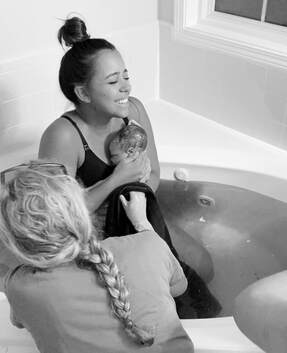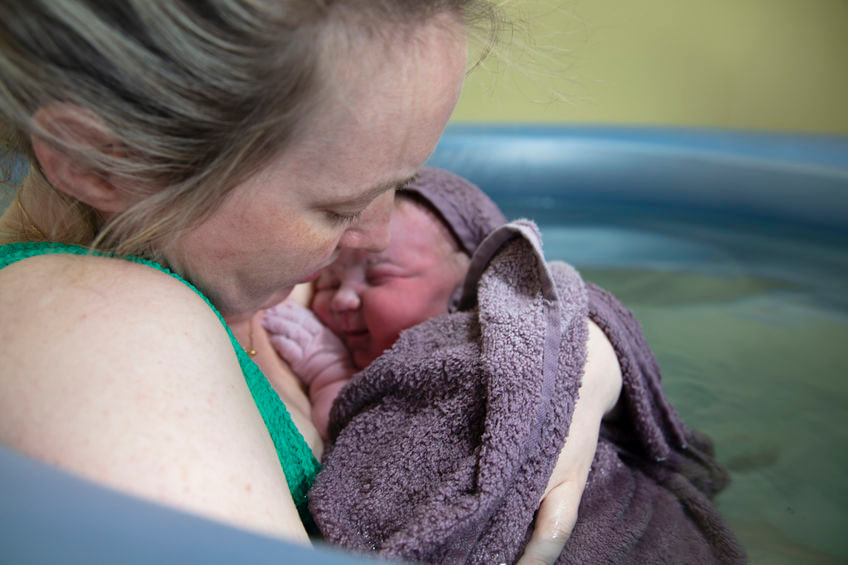Are Water Births Safe?
|
Water birth can allow a woman to give birth undisturbed and with dignity.
It has advantages for both mother and baby and women have been birthing in water as far back as Egyptian times. In fact, there are petroglyphs depicting water birth of babies destined to become priests or priestesses. Water births are safe for most women with healthy pregnancies who deliver at 37 weeks or later. |
Benefits for Moms |
Benefits for Baby |
|
|
Safety of Water Birth
Water births are generally considered safe for women with healthy pregnancies who deliver at 37 weeks or greater. Water births are associated with:
- similar or lower rates of infection in mothers and babies
- less chance for transmission of GBS from GBS+ mothers
- similar or better results on tests that evaluate the baby’s well being after birth ie. Apgar Scores
- similar or lower rates of babies admitted to special care units
- similar or lower rates of baby deaths
What if my baby tries to breathe underwater?
A number of factors inhibit babies from breathing underwater at the time of birth:
- Hormones
In the days before labor begins, breathing activity or “practice breathing” that baby does in utero decreases dramatically because of prostaglandins (hormones released by the placenta which also play a role in starting labor). - Temperature
Newborns are sensitive to temperature. They are stimulated to breath by the cooler temperatures of air, compared to the warm environment inside the mother. When they are born into warm water, they aren’t stimulated to breath in the warm water. - Dive Reflex
Babies are born with a reflex that helps to prevent them from gasping for air when they are born underwater. They are in a water environment in utero and are born into a water environment. They will take their first breath as they are brought up above the water. - Hypoxia
Babies are born experiencing acute hypoxia, meaning they are temporarily lacking oxygen which inhibits breathing.

